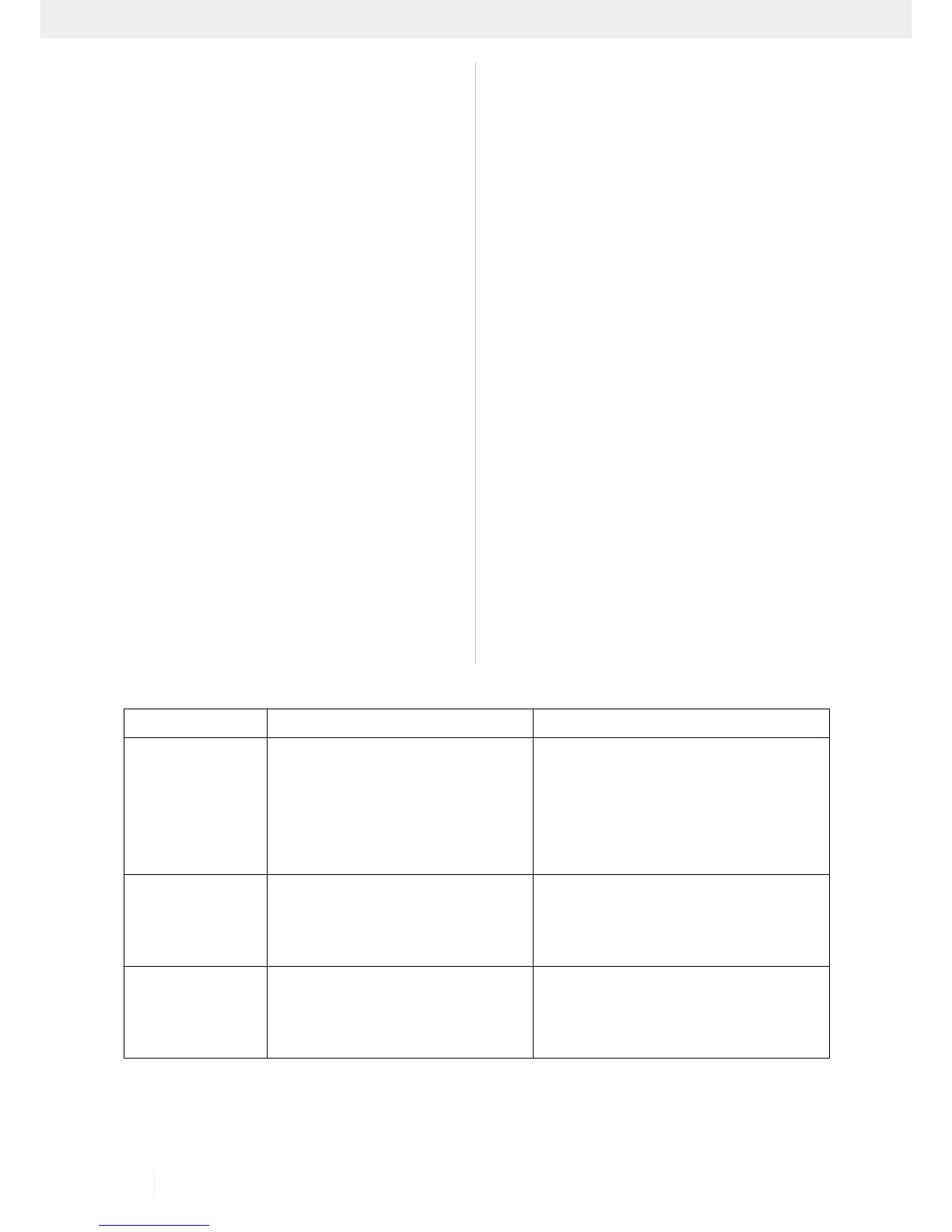When the oil has drained out, re-t the oil drain plug
(12).
Dispose of the old oil at a drop-off point for old oil.
To ll in the correct quantity of oil, make sure that the
compressor stands on an even surface. Fill new oil
through the oil ller opening (19) until it comes up to the
maximum level. This is marked with a red dot on the oil
level window (12) (Fig. 11). Do not exceed the maximum
lling quantity. Overlling the equipment may result in
damage. Reinsert the oil sealing plug (15) into the oil
ller opening (19).
10.6 Cleaning the intake lter (Fig. 3, 12, 13)
The intake lter prevents dust and dirt being drawn in.
It is essential to clean this lter after at least every 300
hours in service. A clogged intake lter will decrease
the compressor’s performance dramatically. Open the
screw (E) to remove the intake lter(2x).
Then pull off the lter cover (D). Now you can remove
the air lter (F). Carefully tap out the air lter, lter cover
and lter housing. Then blow out these parts with com-
pressed air (approx. 3 bar) and reinstall in reverse order.
10.7 Storage
m Important!
Pull out the mains plug and ventilate the equipment and
all connected pneumatic tools. Switch off the compres-
sor and make sure that it is secured in such a way that it
cannot be started up again by any unauthorized person.
12. Troubleshooting
Fault Possible cause Remedy
The compressor does
not start.
• No supply voltage.
• Insufcient supply voltage.
• Outside temperature is too low.
• Motor is overheated.
• Check the supply voltage, the power plug and the
socket-outlet.
• Make sure that the extension cable is not too
long. Use an extension cable with large enough
wires.
• Never operate with an outside temperature of
below +5° C.
• Allow the motor to cool down. If necessary, rem-
edy the cause of the overheating.
The compressor starts
but there is no pres-
sure.
• The safety valve (17) leaks.
• The seals are damaged.
• The drain plug for condensation water (10)
leaks.
• Have a service center replace the safety valve
(17).
• Check the seals and have any damaged seals
replaced by a service center.
• Tighten the screw by hand. Check the seal on
the screw and replace if necessary.
The compressor starts,
pressure is shown on
the pressure gauge, but
the tools do not start.
• The hose connections have a leak.
• A quick-lock coupling has a leak.
• Insufcient pressure set on the pressure
regulator (5).
• Check the compressed air hose and tools and
replace if necessary.
• Check the quick-lock coupling and replace if
necessary.
• Increase the set pressure with the pressure
regulator.
m Important!
Store the compressor only in a dry location which is not
accessible to unauthorized persons. Always store up-
right, never tilted! Oil may leak out!
10.7.1 Releasing excess pressure
Release the excess pressure by switching off the com-
pressor and using the compressed air which is still left
in the pressure vessel, e.g. with a compressed air tool
running in idle mode or with a blow-out pistol.
11. Disposal and recycling
The equipment is supplied in packaging to prevent it
from being damaged in transit. The raw materials in this
packaging can be reused or recycled. The equipment
and its accessories are made of various types of mate-
rial, such as metal and plastic. Defective components
must be disposed of as special waste. Ask your
dealer or your local council.
